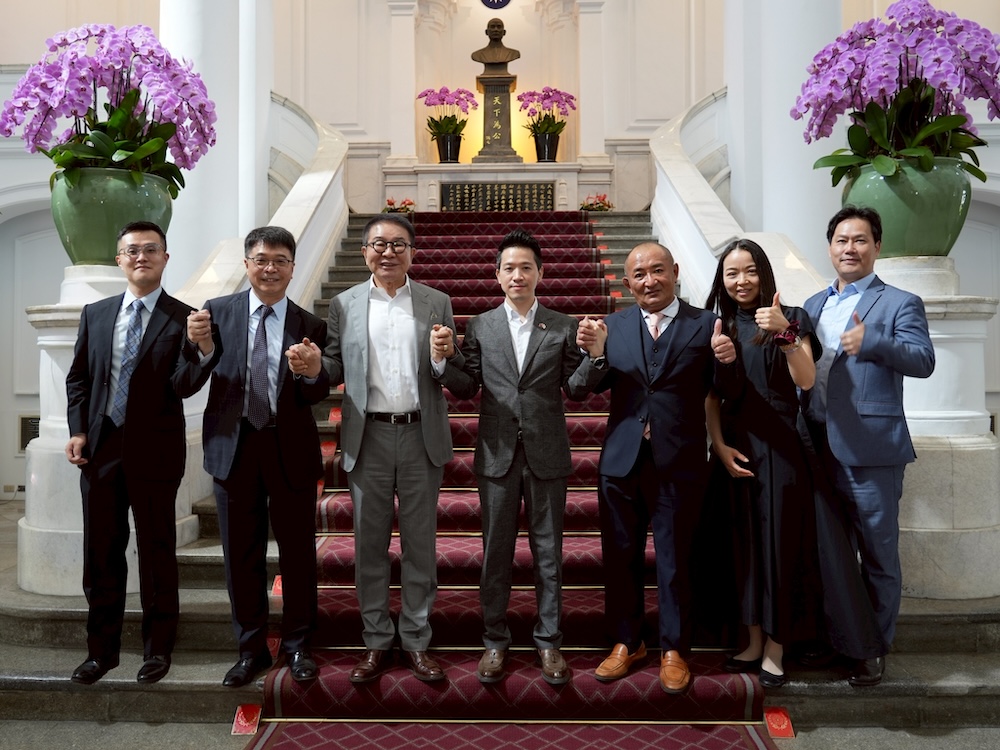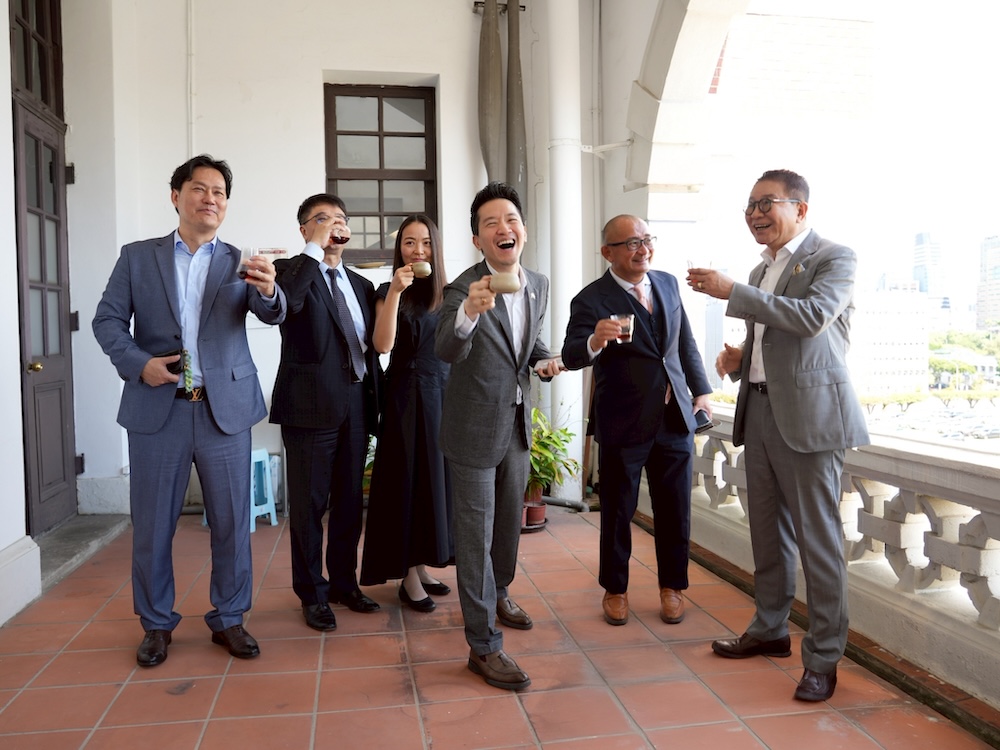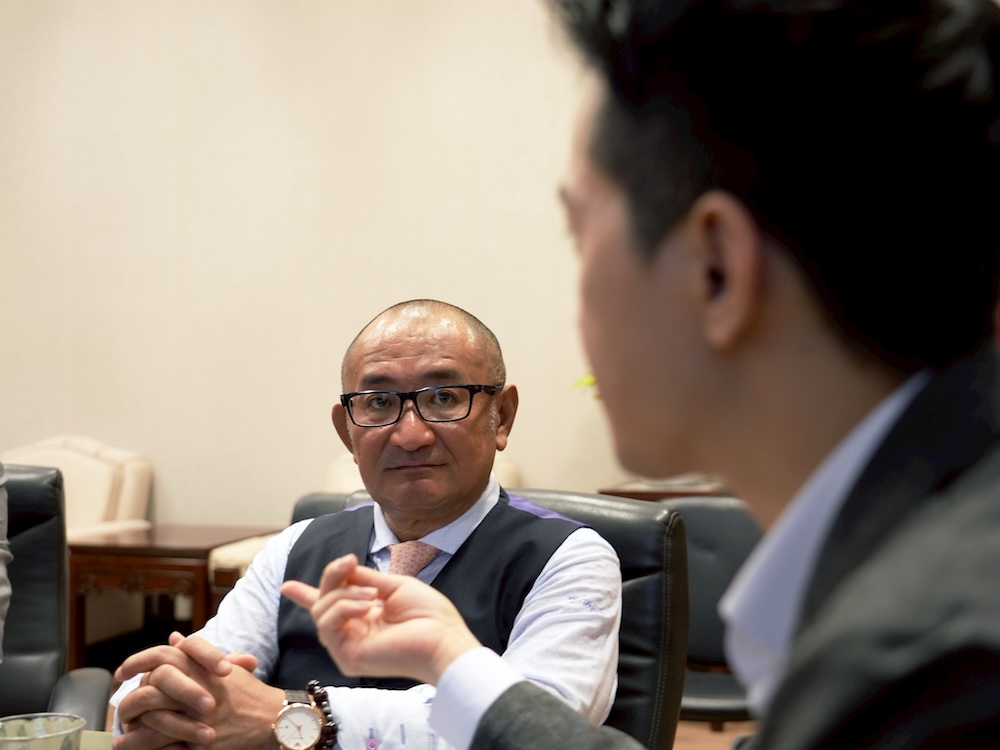2025/10/15
Editorial Column
Targeting the Global Regenerative Medicine Market: Taiwanese Exosome Company Partners with Japan's Toyota Holdings to Promote Industry Upgrading

CNEWS Huicong News Reporter Hu Zhaoxin/Taipei Report
Exosomes have become a global focus in the biotechnology industry due to their broad applications in cancer treatment, regenerative medicine, and medical aesthetics. Last year, the global market size reached USD 4.58 billion and is expected to grow rapidly at a compound annual growth rate of 18.3%. Taiwan Exosome Company (Taiwan Exosome Company, TEC) and Japan Toyota Holdings Co., Ltd. (Toyota Holdings) jointly established "Japan Exosome Corporation" (日本エクソソーム株式会社) in July, using exosomes and NK cell therapy as dual engines to create a next-generation Asian biotech alliance, combining the R&D and manufacturing advantages of Taiwan and Japan to promote the development of the global healthcare market.
Taiwan Exosome Chairman 洪奇昌 and Japan Toyota Holdings President 豐田浩之 visited the Presidential Office on the 15th, where they were received by Deputy Secretary-General of the Presidential Office 何志偉, followed by a visit to the President of the Taiwan-Japan Relations Association 蘇嘉全. 洪奇昌 stated that this collaboration with the innovation-seeking Toyota Holdings in biotechnology and cell therapy research establishes a strong partnership. Especially under the recent efforts of TEC founder 陳振興, a solid foundation has been built, and they look forward to leveraging this Taiwan-Japan cooperation to combine R&D capabilities from both regions, from basic cellular medicine to cell therapy applications, to achieve results in multiple aspects.

豐田浩之 stated that healthcare requires innovation and revolution. He is optimistic about the global market prospects of exosomes. Taiwan possesses the strongest technology, and Japan has the highest quality. He expects the two sides to join forces, starting in Asia and expanding globally, creating greater breakthroughs through this collaboration. Japan Exosome Corporation, chaired by 陳振興, aims not only to attract more partners but also to collaborate with local Japanese laboratories and cell product factories, providing clinical-grade cell products and health applications to medical institutions, with plans to further expand into European, American, and Southeast Asian markets.
TEC possesses a platform for clinical-grade, non-gene-edited universal NK cell preparation. Currently, only six companies and institutions worldwide have this capability. TEC is not only the latest certified entity but also the first NK cell production facility in Taiwan certified by the Ministry of Health and Welfare, with three major process development advantages: "immune cell preparation, exosome research and development, and academic-medical-clinical verification." Its research covers clinical areas such as cancer, autoimmune diseases, neurodegeneration, and anti-aging, demonstrating innovative biomedical technology development capabilities.
洪奇昌 stated that 2025 will be a critical year for the global biotechnology industry structure. Exosome, immune cell, and regenerative medicine technologies are not only new frontiers for clinical applications but also hot spots for capital market deployment. With the promotion of Taiwan's "Regenerative Medicine Dual Laws" and the "Healthy Taiwan" policy, TEC's R&D team has over 10 years of experience in cell process research and development and will actively pursue innovation within the legal framework, demonstrating competitiveness in the global exosome and regenerative medicine fields and benefiting more people in need.

TEC Chief Operating Officer and Chief Technology Officer 林杰良 stated that exosomes are like "couriers between cells," capable of transmitting physiological signals and holding potential applications in immune regulation and neuroscience research. TEC is currently providing clinical trial-grade natural killer (NK) cells for research purposes, including autologous NK cell clinical Phase I treatment research for colorectal cancer at Linkou Chang Gung Memorial Hospital and allogeneic NK cell treatment for pancreatic and bile duct cancers in Phase I/II clinical trials at Tainan National Cheng Kung University Hospital.
TEC stated that by accumulating experience and further refining R&D through domestic and international collaboration strategies, it will continue to enhance research and promote exosome application studies, aiming to innovate and improve clinical care models in the future. At the same time, TEC will promote product and technology quality and safety, clinical standardization, talent cultivation, and cross-border collaboration, connecting Asian and European/American markets, with the vision of "internationally driven core" in regenerative medicine, leading the development of Taiwan's exosome biotechnology industry.
Photo source: CNEWS Huicong News Archive
